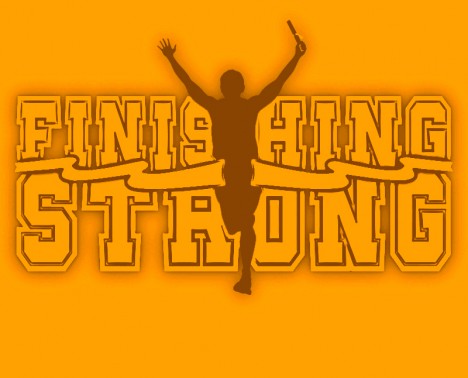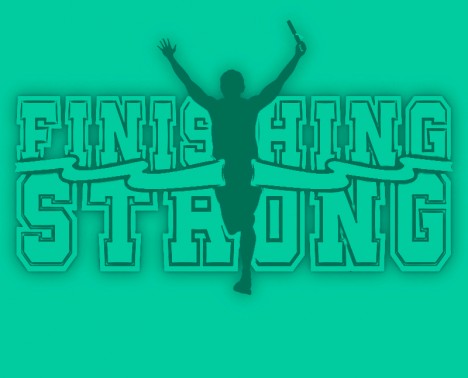As part of our latest Vocational Educational Training (VET) project, we asked our hosting partners what impacts Finishing Strong had on their organisation, beneficiaries and local community. They are also explaining the methods they used to best support our VET trainees.
IDEUM – Arvidsjaur, Sweden
By Louise Renberg, Teacher at Sandbackaskolan, Arvidsjaur
January to the first days of March 2019 Sandbackaskolan in Arvidsjaur took part in a project called Finishing Strong. We hosted three groups of students coming from different colleges in the UK. Hosting three groups for two-week-periods during such a short time was something of a challenge since our school is rather small. Thanks to the possibility of cooperating with our middle school and high school, everything turned out very well in the end.
Sandbackaskolan is an upper secondary school with approximately 400 students. We are situated in the north of Sweden in a small village called Arvidsjaur. At our school we have both vocational programmes and higher education preparatory programmes such as Natural Science programme, Social Science programme, Business Management and Economics programme, Vehicle and transport programme, Child and Recreational programme and Health and Social Care programme.
During their stay in Arvidsjaur the students from England took part in ordinary PE- and English lessons as well as typical outdoor activities for our region. They were introduced to cross country skiing, skating and tabata and at the same time they met with our students in different programmes and different levels. During PE-lessons, the English students also taught our students a few things about sports that are typically English e.g rugby and cricket. This was very much appreciated among our students.
During English lessons, we worked with the actual language as well as comparing cultures, countries etc. Our pupils at middle school (12-year-olds) had prepared questions so that they could interview their visitors trying to find out more about both them and England. They were somewhat nervous beforehand but were very pleased when they realised that they could manage to communicate using what they have learnt in school.
We also showed some of our winter activities to give a hint of what differences there are between our two countries. An example of this is that we went to a slope next to our middle school using mattresses and toboggans to slide downhill on the snow. This was hilariously fun according to your students. Unfortunately, it was very cold during these weeks (around
minus 20 degrees Celsius) which meant that the planned activity with lighting an open fire at the bottom of the hill and grilling our typical “Falu sausage” had to be cancelled. On the other hand at least two of the groups were fortunate enough to spot the Northern Light, probably due to the fact that this is easier when it’s cold outside.
No specific methodology was used to help your trainees. We used our usual teaching and the new environment to try to show differences as well as similarities. They came to a small place where it was dark, snowy and cold as they had wanted and we tried to do our best to show it in a good way.
From what I have been told by one of the leaders of the group, trainees found their stay here most achieving. They were made stronger as a group and several of the students learnt lots about taking responsibility both for themselves and their group. We have been told that they had some once in a lifetime experiences that they will never forget and we are very happy hearing that. Hopefully, they also learnt some about what it is like living in the north of Sweden.
From the point of view of all our schools involved, both when it comes to staff and students, our visitors had an immense impact on us. By their positive attitudes, they showed that nothing is impossible! They made our students talk English, realising that they manage much more than they think! Meeting people from another country and learning about their way of living and their thoughts creates an understanding and a curiosity for other people, which is very important in this world. I think that everybody here felt that we finished off stronger after meeting the English youngsters and their leaders.
Youth in the Town (Jeunesse dans la Ville) – Martinique
By the whole team
FR – Depuis 2010, notre association est engagée dans des projets axés sur la culture et la mobilité des jeunes en Europe (programme ERAMUS+). En qualité de partenaire, nous sommes chargés d’organiser le séjour de jeunes en Martinique par le biais du projet « Finishing Strong » créé par l’organisme « Everything is possible ».
Nous collaborons avec des clubs sportifs de la ville du Robert, qui ont bien voulu accueillir des étudiants Britanniques lors de leur entraînement. Ainsi, les Anglais viennent renforcer le coaching des disciplines suivantes : Basket, football, rugby, athlétisme, gymnastique et cyclisme. De plus, ils ont même l’opportunité de pratiquer des sports nautiques et d’être initiés à la navigation traditionnelle à bord d’une embarcation locale appelée « yole ».
Dans le but d’aider ces jeunes à communiquer durant leur séjour, notre équipe d’animateurs met en place un atelier d’initiation à la langue française pour chaque groupe. Si nécessaire, un agent de notre structure peut se rendre sur les lieux de stage pour la traduction. Cependant, il convient de dire que les groupes se débrouillent plutôt bien et développent des compétences en communication verbale et/ou non verbale.
Par ailleurs, des rencontres sont prévues pour que ces derniers puissent échanger avec nos volontaires en service civique durant des jeux, des défis et les soirées interculturelles. Lors de nos rencontres, nous mettons en place des ateliers où nous souhaitons qu’ils se présentent en français, qu’ils retiennent des expressions courantes, les chiffres, les directions grâce à des jeux ludiques. L’objectif premier est la pratique de la langue, quand bien même cela reste assez basique, le primordial c’est qu’ils puissent s’exprimer au minimum durant leur séjour.
Grâce à ces moments, les jeunes stagiaires se familiarisent à la langue française et ils se font une idée plus concrète de ce qu’est la culture Martiniquaise.
Lors des entraînements, certains coaches locaux leur confie entièrement la session. C’est notamment le cas du football où les jeunes sont amenés à gérer des groupes, proposer des jeux ou des exercices. Pour d’autres sports, ils doivent tous simplement assister et observer le coach. Cela reste une opportunité pour eux de se familiariser à de nouvelles méthodologies d’apprentissage, et de prendre conscience du relationnel coach/joueur ou coach/groupe d’élèves. Car il est vrai, la relation entre entraîneur et joueurs à une importance cruciale pour l’évolution des sportifs. Ainsi, lors de certaines sessions nous avons constaté que des étudiants ont développés leur confiance en eux quand ils avaient à leur charge des groupes. Car aux contacts des jeunes anglais, les joueurs des clubs sont plus attentifs et concentrés puisqu’ils souhaitent améliorer leurs performances.
Selon les coaches locaux, cela reste des rencontres très attendues par leur joueur car les étudiants Anglais leur permettent de pratiquer des exercices différents voire nouveaux ce qui est très motivant pour eux. En somme, cette expérience est enrichissante pour tous car nos partenaires locaux apprennent également aux cotés des professeurs Britanniques.
Du point de vue de nos volontaires en service civique, ils trouvent les échangent intéressants et aiment se réunir avec les stagiaires car ils profitent pour parler anglais, et prennent plaisir à préparer des activités et proposer des idées en amont pour les rencontres à venir.
Translation in EN – Since 2010, our association is involved in projects focused on culture and youth mobility in Europe (ERAMUS + program). As a partner, we are responsible for organizing the stay of young people in Martinique through the project “Finishing Strong” created by the organization “Everything is Possible”.
We collaborate with sports clubs in the city of Robert, who welcomed British students during their training. Thus, the English come to reinforce the coaching of the following disciplines: Basketball, football, rugby, athletics, gymnastics and cycling. In addition, they even have the opportunity to practice water sports and to be introduced to traditional sailing aboard a local craft called “yole”.
In order to help these young people communicate during their stay, our team of facilitators set up a French language initiation workshop for each group. If necessary, an agent of our structure can go to the places of training for the translation. However, it should be said that the groups are doing quite well and developing verbal and / or nonverbal communication skills.
In addition, meetings are planned so that they can exchange with our volunteers in civic service during games, challenges and intercultural evenings. During our meetings, we set up workshops where we wish that they present themselves in French, that they retain current expressions, the numbers, the directions thanks to playful games. The primary objective is the practice of the language, even if it remains rather basic, the essential thing is that they can express themselves at least during their stay.
Thanks to these moments, the young trainees become familiar with the French language and they get a more concrete idea of what the Martinique culture is.
During training, some local coaches give them the entire session. This is particularly the case of football where young people have the opportunity to lead a groups, offer games or exercises. For other sports, they all just have to attend and observe the coach. This remains an opportunity for them to become familiar with new learning methodologies, and to become aware of the coach / player or coach / group of students relationship. Because it is true, the relationship between coach and players is crucial for the evolution of athletes. Thus, during some sessions we found that students developed their self-confidence when they were in charge of groups. Because to the contacts of the young English, the players of the clubs are more attentive and concentrated since they wish to improve their performances.
According to the local coaches, this is still very much awaited meetings by their player because the English students allow them to practice different exercises even new which is very motivating for them. In short, this experience is enriching for everyone because our local partners are also learning alongside British teachers.
From the point of view of our civic service volunteers, they find the exchanges interesting and like to get together with the trainees as they take the opportunity to speak English, and enjoy preparing activities and coming up with ideas for future meetings.
Spain
By Vega
ACTIVITIES
- Football training to learn the Spanish methodology with Spanish coaches.
- Valencia City Tour. Cultural activity
- Valencia Cf. Stadium Tour. Cultural activity
- Show cooking. The students learn about cooking Spanish dishes.
- Football training as a coach with kids and Spanish coaches. They learn how the Spanish coaches teach the players the way to play football.
- Which kind of activities they do during the training to achieve different goals.
- Trainings with a disable team. The students train with players who have different disabilities. This point is very important because the young students should know about different situations and about how important is the Sport for Social inclusion, integration…It is a main goal to all have equal opportunities.
We introduce them on Spanish trainings to learn from the practice, and the coaches teach them the methodology they use for, why they do each exercise, the goal of each activity etc… and then, the same but as a coaches.
As we said about the disable trainings, they learn how to train with this players, the best way to learn for them… after this kind of activities they learn that the most important is to enjoy, the competitiveness becomes secondary. The most important thing is to participate and have fun. Sport for Social inclusion.

The European Commission support for the production of this publication does not constitute an endorsement of the contents which reflects the views only of the authors, and the Commission cannot be held responsible for any use which may be made of the information contained therein.



